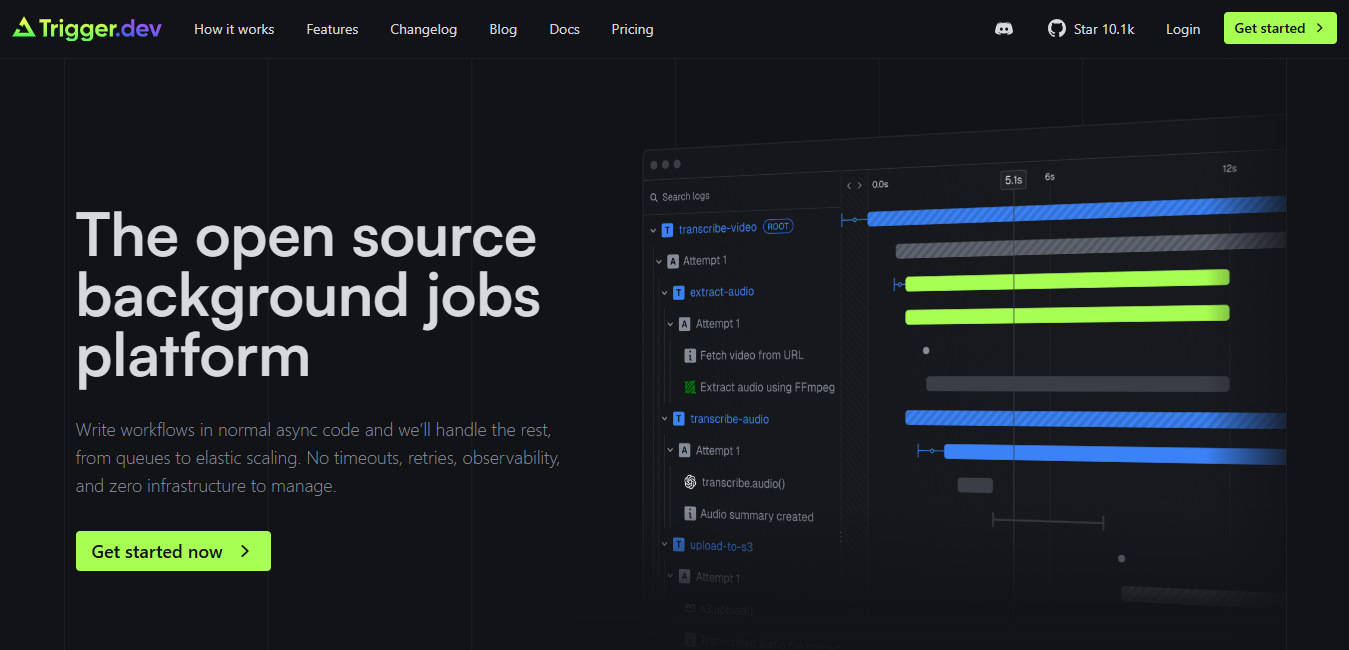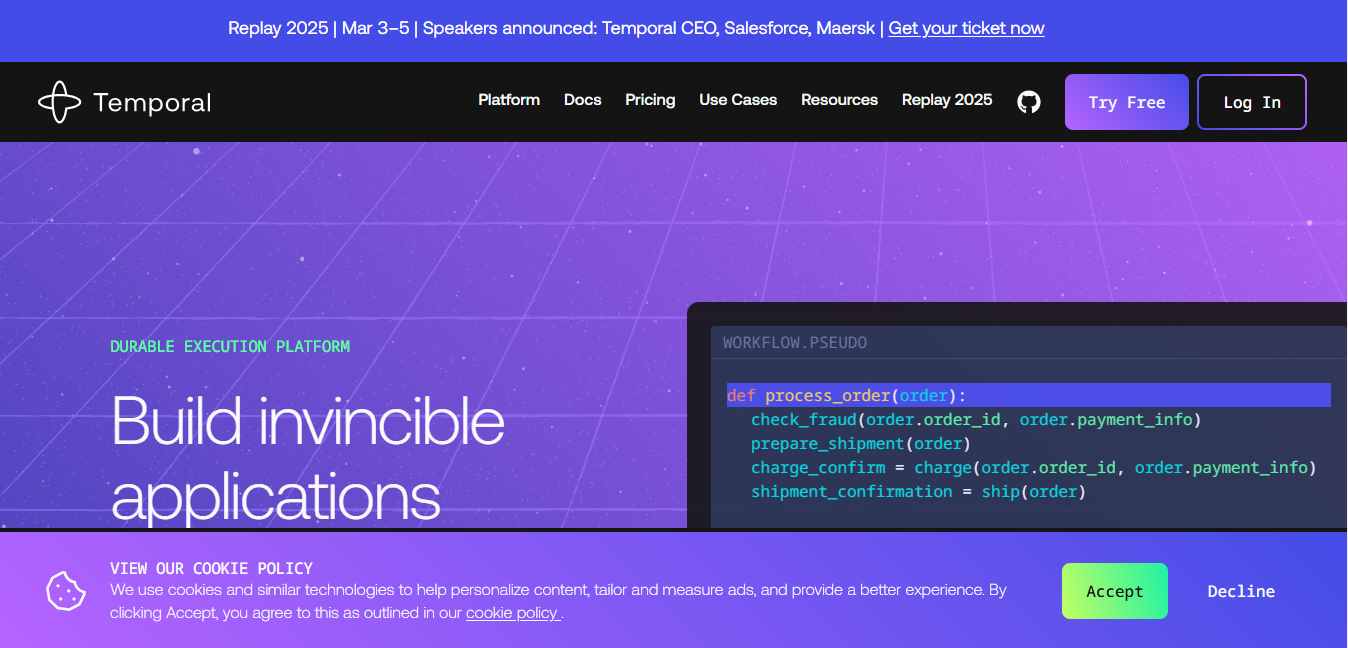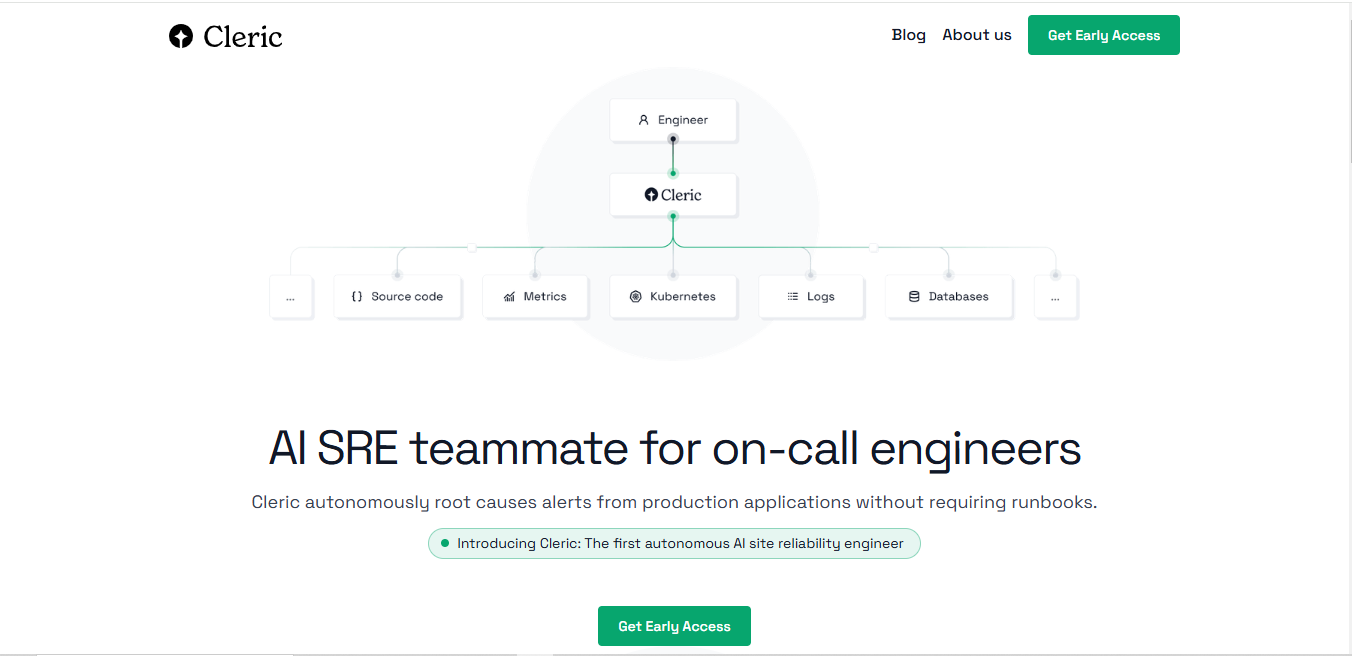
Replicate Codex
What is Replicate Codex?
Replicate Codex is an AI platform that allows users to run and fine-tune open-source models, deploy custom models at scale, and access thousands of community-contributed models through a simple API. It operates on a pay-as-you-go model, making AI accessible to developers and businesses of all sizes.
Top Features:
- API-driven AI execution: run AI models with just one line of code.
- Community model library: access thousands of open-source models with production-ready APIs.
- Custom model deployment: deploy your own models using Cog, an open-source packaging tool.
Pros and Cons
Pros:
- Ease of use: get started quickly with simple API calls.
- Flexible pricing: pay only for the compute time you use.
- Scalability: automatically scales to handle varying demand levels.
Cons:
- Learning curve: may require some technical knowledge to fully utilize.
- Limited documentation: some users report insufficient guidance for complex tasks.
- Dependency on third-party models: quality can vary among community-contributed models.
Use Cases:
- Image generation: create custom images using AI models like Stable Diffusion.
- Natural language processing: implement text analysis and generation tasks.
- Model fine-tuning: adapt existing models to specific domains or tasks.
Who Can Use Replicate Codex?
- Developers: integrate AI capabilities into applications and services.
- Researchers: experiment with and deploy machine learning models efficiently.
- Businesses: implement AI solutions without extensive infrastructure investment.
Pricing:
- Free Trial: not explicitly mentioned, but pay-as-you-go model allows for low-cost testing.
- Pricing Plan: billed by the second for compute time, with varying rates for different hardware options.
Our Review Rating Score:
- Functionality and Features: 4.5/5
- User Experience (UX): 4/5
- Performance and Reliability: 4.5/5
- Scalability and Integration: 4.5/5
- Security and Privacy: 4/5
- Cost-Effectiveness and Pricing Structure: 4.5/5
- Customer Support and Community: 3.5/5
- Innovation and Future Proofing: 4.5/5
- Data Management and Portability: 4/5
- Customization and Flexibility: 4.5/5
- Overall Rating: 4.3/5
Final Verdict:
Replicate Codex stands out as a powerful platform for AI model deployment and execution. Its strengths in scalability, ease of use, and flexible pricing make it an excellent choice for developers and businesses looking to integrate AI capabilities. However, users should be prepared for a learning curve and potential documentation gaps.
FAQs:
1) How does Replicate Codex pricing work?
Replicate Codex uses a pay-as-you-go model, charging users by the second for the duration their code is running. When not in use, it scales to zero, incurring no charges.
2) Can I deploy my own custom models on Replicate Codex?
Yes, you can deploy custom models using Cog, Replicate's open-source tool for packaging machine learning models. This allows for easy API generation and cloud deployment.
3) What types of AI models are available on Replicate Codex?
Replicate Codex hosts a wide range of models, including image generation, language processing, and specialized models contributed by the community. All models have production-ready APIs.
4) Is Replicate Codex suitable for small businesses or individual developers?
Yes, its flexible pricing and scalability make it accessible for small businesses and individual developers who want to implement AI without significant upfront investment.
5) How does Replicate Codex handle security and data privacy?
While specific details are not provided, Replicate Codex operates on cloud infrastructure and likely implements standard security measures. Users should review their documentation for detailed information on data handling and privacy practices.
Stay Ahead of the AI Curve
Join 76,000 subscribers mastering AI tools. Don’t miss out!
- Bookmark your favorite AI tools and keep track of top AI tools.
- Unblock premium AI tips and get AI Mastery's secrects for free.
- Receive a weekly AI newsletter with news, trending tools, and tutorials.







